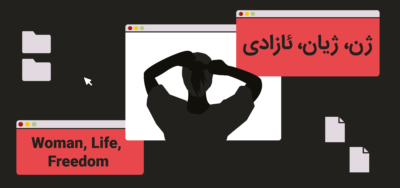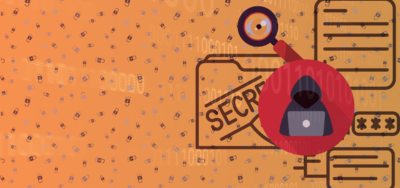November 2018 saw continued wrangling between state policy-making bodies about the pace and direction of projects supporting the development of domestic messaging apps to supplant Telegram, with the ICT Ministry and the parliamentary ‘Cyberspace Faction’ expressing frustration at a perceived lack of progress.
Also during the month of November, Iran also claimed that it has been a target of cyber attacks originated from Israel. According to Iranian officials the cyber attacks failed to leave any damage on Iranian ICT infrastructure as they were neutralised by Iranian forces.
After months of anticipation, the Trump administration unveiled new sanctions against Iran, including economic sanctions on 50 banks and their subsidiaries, Iran’s national airline, and 200 individuals and vessels in the country’s shipping industry. Iran continued to develop its response to these new sanctions (and other perceived external threats) throughout November, in the face of continuing public anxiety about falling living standards and economic uncertainty.

Policy Developments
No SCC Meetings in November
No meetings of the Supreme Council of Cyberspace (SCC) took place during the month of November.
The SCC is required to meet every at least once every four weeks. The last meeting took place on 22 October. In the past, Rouhani has been criticised for not holding frequent enough meetings of the SCC, although so far in his second term meetings have been held on a regular basis.
Deputy ICT Minister Slams Ministries for Dragging Feet on Domestic Messaging Apps
On 23 November representatives from a number of domestic messaging apps met with Deputy ICT Minister Hamid Fatahi. In the meeting, Fatahi said that a document titled “Supporting Domestic Messaging Apps” had been passed on 1 August 2016 by the SCC and received approval from Supreme Leader Khamenei before being sent to all the appropriate ministries and organisations.
According to Fatahi, the documents outlined five or six action points for the ICT Ministry but the rest of the actions was for other organisations and ministries. Although the document is not available in full for the public, it appears to be leading document in outlining the financial and infrastructural support each section of Iranian government must give to domestic messaging apps.
The meeting was also attended by representatives from the messaging apps Soroush, Eitaa, and BisPhone. The conservative MP Ehsan Ghazizadeh — who recently launched the parliamentary ‘Cyberspace Faction’ — was also present.
Telecommunications Infrastructure Company Budget Passed
On 11 November General Assembly of Telecommunication Infrastructure Company gathered and its members voted for the budget of the TIC for the coming year.
During as well as Siroos Movaseghi, representatives from ICT Ministry, Plan and Budget organisation, Ministry of Economic Affairs and Finance, Ministry of Defence and Armed Forces Logistic, and Ministry of Cooperatives, Labour, and Social Welfare.
Iran Secures Post on ITU Council
On 5 November at the ITU’s 2018 Plenipotentiary Conference in Dubai, Iran was elected to the ITU Council. It occupies one of the 13 seats in the ITU’s ‘Asia and Australasia’ region. The Council has a total of 48 seats globally.
This marks an extension of Iran’s engagements in ICT diplomacy and international internet governance sphere, and will allow it to play a more influential role in global debates over global ICT regulations.
According to the ITU website, the Council “acts as the Union’s governing body in the interval between Plenipotentiary Conferences. Its role is to consider broad telecommunication policy issues to ensure that the Union’s activities, policies and strategies fully respond to today’s dynamic, rapidly changing telecommunications environment”.

Infrastructure
CRA Accuses IRIB of Obstructing Mobile Networks
On 19 November, the head of Iran’s Communications Regulatory Authority (CRA) Hossein Fallah Joshaghani stated that IRIB was an obstacle to the development of Iran’s mobile networks. He accused IRIB of refusing to free up the 700 and 800 MHz frequencies, therefore denying their use to mobile phone operators.
He added that the issue has been referred to the SCC to resolve the conflict between IRIB and the ICT Ministry. Previously, IRIB and the ICT Ministry have found themselves in direct conflict over a number of other issues, such as the regulation of IPTVs.
ICT Ministry Launches National Trunk Radio Network
On 6 November during Iran’s ‘Passive Defence Week’, Iran’s ICT Minister Mohammad Javad Azari Jahromi unveiled Iran’s “National Trunk Radio” network. The network was tested by connecting Mazandaran, Kerman and Khuzestan with locations in Greater Teheran. The Network was built after by a 17 billion IRR investment allocated to it by the cabinet and Supreme Council of National Security. According to the ICT Ministry this infrastructure will be used to manage ICT communications during times of national crisis.

Cybersecurity & Cybercrime
ICT Minister Claims Israeli Cyber Attack Thwarted
On 5 November Iran’s ICT Minister Mohammad Javad Azari Jahromi announced that Iran’s network infrastructure was the target of a cyber attack from an Israel-based company called Golden Line. Jahromi claimed that the attack was successfully neutralised by Iranian officials. He added that Iran will pursue the matter legally in International institutions.
Jahromi did not specify the details of the attack, although he added that Iran’s mobile phone network infrastructure was the main target of the attack
After Kermanshah Earthquake, FATA Warns of Crackdown on Misinformation
On 25 November Colonel Mohammadreza Amooyi from the Kermanshah Province Police said that the Cyber Police (FATA) has been monitoring social media for rumours and false news in the aftermath of the earthquake in the provence, and will take legal actions against those spreading rumours to disturb the peace.
The 6.3-magnitude earthquake took place on Sunday 24 November. In recent years, FATA has been active in warning Iranian social media users about the dangers of spreading disinformation, threatening violators with arrest and legal action.

Digital Services & the Digital Economy
ICT Ministry Announces Citizens’ Banking and Fuel Cards Linked
On 26 November Iran’s ICT Ministry announced that bank cards are now synced with the subsidised fuel cards of Iranians. According to the ICT Ministry, this development will lead to citizens saving 3.3tn IRR (78.5m USD) per year. The development of digital services is a key pillar of the development of SHOMA, and has been heavily promoted by government ministries.
ICT Ministry: ICT Sector Worth 44tn IRR to Iranian Economy in 2016–17
On 14 November Niloufar Morad, the Strategic Planning and Coordination Deputy from the ICT Ministry’s Office of Economic Investigations said that between March 2012 — March 2013 (or 1391 in the Iranian calendar) the ICT sector added a total of 1.41% to the Iranian economy, whereas between March 2016 — March 2017 (or 1395) this figure rose to 1.52%.
According to Morad, by 1395 the ICT sector was worth 44tn IRR (10.45bn USD) to the Iranian economy.
ICT Ministry Confirms Banking Services to be Moved to SHOMA
On 6 November Mohammad Sadegh Beikpour, the Head of the ICT Ministry’s Passive Defence Committee said that the committee is working to ensure that Iran’s online banking services are provided on SHOMA’s infrastructure and accessible at any situation.
This appears to be a move to boost the readiness of Iran’s financial systems for crises and incidences of internet shutdowns, either caused by state authorities or external actors.

Content, Apps & Social Media Filtering
ICT Ministry Denies ‘Smart Filtering’ Plans for Instagram
Seyyed Jamal Hadiyan Tabayi the head of public relations at ICT Ministry on 9 November dismissed the claims that there are plans for “smart filtering” of Instagram. He added that ICT Ministry would be completely open with the public on these issues. Last month an official from FATA claimed there are such proposals are being considered.
”Smart Filtering” refers to a previous flagship ICT policy which sought to block access to certain Instagram pages while providing access to the rest of the site to Iranian users. The policy was previously abandoned after Instagram’s introduction of the HTTPS protocol made Iran’s filtering methods obsolete.
NCC Expresses Concern Over Current Version of ‘Managing Social Messengers Bill’
On 7 November Saeed Mehdiyoon the Deputy for Regulation Coordination at the National Cyberspace Center said that the issues of support for domestic messaging apps and the granting further control to armed forces outlined in ‘Managing Social Messengers Bill’ must be introduced in different bills. Both policy initiatives appeared in the existing draft of the bill.
It is likely that if the bill progresses to a binding vote in Parliament, ICT policy making bodies such as the National Center for Cyberspace will seek to contest it further.
The current version of the bill contradicts the stated policies of the ICT Ministry and the SCC, and appears to constitute a rather ambitious push by conservative elements in the Iranian establishment to secure more influence over national ICT infrastructure and policy-making processes.




